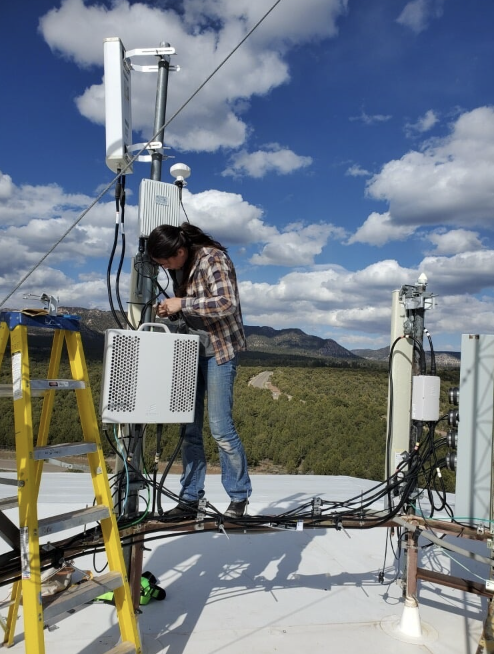The Department of the Interior’s Office of the Assistant Secretary for Indian Affairs announced a new policy today aimed at reducing bureaucratic hurdles and accelerating the approval process for tribal broadband infrastructure projects. The updated policy is part of Secretary of the Interior Doug Burgum’s broader initiative to streamline federal support for tribal priorities, including infrastructure and energy development.

Designed to improve access in rural and underserved areas of Indian Country, the policy introduces a comprehensive framework for efficiently processing right-of-way applications essential to broadband deployment. These rights-of-way are required to construct broadband networks on tribal lands, including individually owned Indian trust or restricted lands. To expand connectivity, broadband projects often utilize existing infrastructure corridors, such as roads.
“This new policy supports the Trump administration’s commitment to cutting red tape and upholding tribal sovereignty,” said Janel Broderick, principal deputy assistant secretary for Indian Affairs. “Expediting processes and respecting tribal decision-making are key to fulfilling our responsibilities to tribal communities.”
Broadband infrastructure plays a critical role in supporting economic development, education, healthcare, and overall quality of life in tribal communities. It encompasses a wide range of technologies, including fiber optics, wireless systems, transmission lines, satellite, cable, and internet services—each of which is vital to improving connectivity in remote and underserved regions.
As part of the new streamlined process, the Bureau of Indian Affairs now has seven business days to review submitted applications and notify applicants if additional information is required. The policy also outlines opportunities for waivers of specific regulatory requirements and reinforces deference to tribes and landowners in determining what serves their best interests.
A series of webinars on this newly released policy will be open to Indian Affairs staff, tribal realty staff, federally recognized tribes, tribal organizations, Alaska Native corporations, federal partners and industry.
The webinars will be held on:
- Session 1 - Friday - September 12, 2025, at 1 p.m. EDT. Click here to register.
- Session 2 - Monday - September 15, 2025, at 1 p.m. EDT. Click here to register.
- Session 3 - Thursday - September 18, 2025, at 2 p.m. EDT. Click here to register.
More Stories Like This
Native News Weekly (August 25, 2024): D.C. BriefsNavajo Nation Mourns the Passing of Former Vice President Rex Lee Jim
Deb Haaland Earns Endorsement From Communications Workers of America Local 7076
University Soccer Standout Leads by Example
Two Native Americans Named to Democratic Congressional Campaign Committee's“Red to Blue” Program
Help us defend tribal sovereignty.
At Native News Online, our mission is rooted in telling the stories that strengthen sovereignty and uplift Indigenous voices — not just at year’s end, but every single day.
Because of your generosity last year, we were able to keep our reporters on the ground in tribal communities, at national gatherings and in the halls of Congress — covering the issues that matter most to Indian Country: sovereignty, culture, education, health and economic opportunity.
That support sustained us through a tough year in 2025. Now, as we look to the year ahead, we need your help right now to ensure warrior journalism remains strong — reporting that defends tribal sovereignty, amplifies Native truth, and holds power accountable.
 The stakes couldn't be higher. Your support keeps Native voices heard, Native stories told and Native sovereignty defended.
The stakes couldn't be higher. Your support keeps Native voices heard, Native stories told and Native sovereignty defended.
Stand with Warrior Journalism today.
Levi Rickert (Potawatomi), Editor & Publisher


